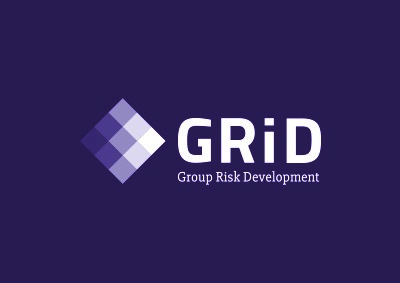Press release 1 February 2019.
While a cancer diagnosis can strike fear into the heart of anyone, employers can also be completely blindsided when hearing that a member of staff has cancer, and be totally unsure how to support them best.
Katharine Moxham, spokesperson for GRiD said: “There are cases of employees with cancer being treated very poorly by their company, and this may be because the employer panics, doesn’t know what to do, makes an assumption that the employee won’t be able to work, and/or doesn’t know how to get advice or support. Employees may not be given the opportunity to continue working and this can be detrimental to their recovery.”
In keeping with the theme of World Cancer Day,* this year #IamandIwill is encouraging us all to reduce the impact of cancer. The good news is there is a wealth of support within group risk products (employer-sponsored life assurance, income protection and critical illness) – not just for employees – but very much for employers too. Specialist advice can be given to employers about a number of areas, including:
- How to discuss working arrangements with the employee
- What the effects of treatment might be
- Easing someone’s workload
- How to support colleagues
- How to deal with relapses
- The employer’s legal responsibilities towards an employee who has cancer
Many employees who receive a diagnosis of cancer will want to, and be able to, continue working. Others will need more time off to undergo treatment and to recover. Some will need a change in their working hours, some will need a change of role or an easing of workload, and others will need a phased return to work. Above all, cancer is unpredictable so plans should be flexible.
While some employees, of course, are completely unable to work while they’re undergoing treatment and recovery, for others, going to work is part and parcel of maintaining normality and can aid their recovery.
To highlight this Moxham gives an example: “It was extremely important to the family of an employee with whom I worked that he went to work as normal. If he didn’t, his children worried about him and thought he was going to die. This might sound dramatic, but cancer can be frightening, not just for the person with the diagnosis, but for all those around them too. Often the person with cancer feels a responsibility for loved ones, and being given the opportunity to act as normally as possible, can help them reassure others. This might mean going to work as normal – as it did for this particular employee – and it’s vital that employers are able to facilitate this.”
It’s important that employers don’t assume that those with cancer won’t be able to continue working, or indeed, that they can. By seeking specialist advice they can ensure they offer the most appropriate support. Everyone has a different experience with cancer so it’s imperative to keep discussing, reviewing and adjusting the plan together.
There is also a wealth of support available for employees within group risk products, including financial, emotional and physical; with access to advice from specialist oncology teams, vocational rehabilitation specialists and counsellors. Support can also be made available for colleagues and dependants that may be affected.
Moxham concluded, “The effects of cancer are far-reaching, and many employers may not know how to offer help to those affected. Group risk products include some of the most comprehensive support available, and we would urge employers to look at what they offer when considering how to help their staff.”
- Ends –
*https://www.worldcancerday.org/
For further information please contact:
Sharon Mason
SMUK Marketing and PR
smason@smuk.org.uk
Mob: 07747 611773
Land: 01252 843350
Katharine Moxham
Spokesperson for GRiD
Katharine.moxham@grouprisk.org.uk
Mob: 07887 512508
Notes for editors
About GRiD
Group Risk Development (GRiD) is the industry body for the group risk protection sector, promoting the value to UK businesses of providing financial protection for their staff, enhancing their wellbeing and improving employee engagement. Our membership includes insurers, reinsurers and intermediaries who have a collective wealth of experience built over years of operating in the group risk protection market. Under the chairmanship of Steve Bridger (MD Group Protection, Corporate, Aviva UK Insurance) GRiD aims to promote group risk through a collective voice to Government, policymakers, stakeholders and employers.
GRiD works with government departments and regulators involved in legislation and regulation affecting group risk benefits, and with other organisations involved in the benefits and financial protection arenas. GRiD also seeks to enhance the industry’s standing by encouraging best practice and by participating in industry-wide initiatives such as the professional qualification in group risk managed jointly with the Chartered Insurance Institute.
GRiD’s media activity aims to generate a wider awareness and understanding of group risk products and their benefits for employers and employees.
GRiD’s dedicated spokesperson, Katharine Moxham, provides expert media comment on a full range of group risk issues.
Follow Katharine Moxham on Twitter @KMoxham


